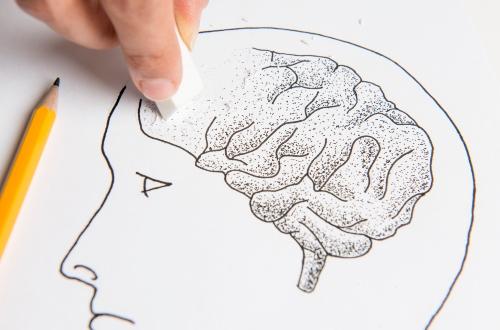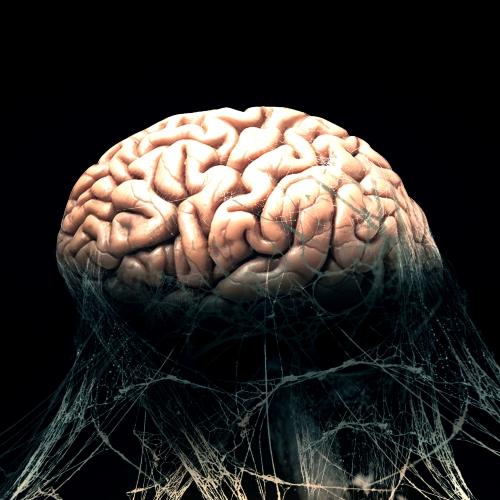Traumatic Brain Injury

If you or someone you love has suffered a Traumatic Brain Injury (TBI) due to an accident, you need a brain injury lawyer that will make sure you get the compensation you deserve.
Brain injuries can be caused by car accidents, assaults, and even serious falls. A brain injury can also occur as the result of repeated head injuries and concussions.
At Schuerger Shunnarah Trial Attorneys, our traumatic brain injury lawyer will aggressively fight for you and make sure you get the compensation you need to battle the long-term consequences of someone else’s negligent actions.
The long-term impact a brain injury victim faces can last a lifetime. From permanent disability and physical trauma to ongoing therapy and emotional distress, victims of brain injuries face a costly uphill battle on their road to recovery.
Insurance companies want to settle with you for a much lower amount, and insurance adjusters won’t take into account the impact your injury will have on your quality of life. Schuerger Shunnarah Trial Attorneys will.
We know that brain injury survivors’ future will depend on the treatment they receive and their ability to afford the proper care. Our legal team will make sure you get the most compensation possible for your injuries and for the suffering you endured.
We’ve won over 1 billion for the accident victims that come to us. Our Traumatic Brain Injury Lawyer will hold the liable party accountable to make sure that you are able to afford the medical care and receive the compensation you need to improve your quality of life.
What Is A Traumatic Brain Injury?
TBI is a severe, crippling, and sometimes fatal injury caused by head trauma. It causes a disruption of normal brain functioning due. The injury can come from a bump, blow, shaking, or penetration to the head.
All the things that we take for granted, like eating, breathing, and maintaining normal cardiac function, are controlled by nerve impulses from our brain. The normal daily tasks that we take for granted can become incredibly difficult after a TBI.
Every year, millions of Americans suffer a traumatic brain injury, some even resulting in permanent impairment. Brain injuries are frequently caused by slip and fall, motorcycle, trucking, and auto accidents. A brain injury lawyer understands the differences in the severity of a TBI and what that means for the victim.
A mild TBI is considered a concussion, which is the most common type of TBI. 3 out of every 4 TBI’s are concussions. Mild Concussions can include:
- loss of conciousness for less than 30 min
- feeling of being “dazed”
- confusion for 1 day
With a moderate TBI, the injury causes:
- loss of consciousness for over 30 minutes but less than one day
- Confusion for up to one week.
With a severe TBI, the injury causes:
- loss of conciousness for over 1 day
- typically have visible changes on head CT or brain MRI
If a TBI is considered uncomplicated it means that there are no changes on a scan, no matter what severity the injury is. If it is considered complicated there are changes on a scan.
Most TBI’s are closed, but some can be open. Here are the differences between the two:
- Closed: An outside force causes the head and brain to move rapidly back and forth, which can change chemicals in the brain and potentially damage brain cells.
- Open: This is also known as a penetrating TBI. This is when an object, such as a bullet, knife, or piece of metal goes though the skull, and into the brain tissue.
What Are Common Symptoms Of A TBI?
Depending on the extent of the damage to the cerebrum, traumatic brain injury symptoms can be severe, moderate, or mild. Some symptoms may not surface for a while after the accident, while others might appear immediately. An injury such as a concussion, stroke, or whiplash can cause brain damage without showing evidence of serious trauma.
This is why it is important to be seen by a medical professional as soon as possible after your accident. Waiting for symptoms to show can cause the statute of limitations to pass and prevent you from getting the compensation you deserve.
Adults with a mild traumatic brain injury may feel out of sorts or confused for weeks or days after the accident.


The following is a list of common TBI symptoms in adults that victims of brain injury may manifest:
- Persistent mild headaches
- Poor concentration
- Confusion
- Poor memory
- Poor organizational ability
- Poor decision making
- Mood changes
- Slow speech
- Slow reading
- Neck pain
- Lack of energy
- Change in sleep patterns, such as insomnia or oversleeping
- Loss of balance or coordination
- Blurred vision
- Sensitivity to light
- Loss of senses
- Ringing in the ears
- Loss of sex drive
Noticing signs of brain injury in children may be more difficult because they have less developed communication skills. The child may feel some symptoms but cannot express them. If you observe any of the following changes in your child, a brain injury is possible:
- A lack of energy
- Crankiness or an increase in temper tantrums
- Changes in their eating habits
- Changes in the way they play
- Altered performance in school
- Loss of interest in favorite toys
- Loss of skills, such as toilet training, reading, or writing
- Loss of coordination and balance
Early mild traumatic brain injury symptoms may first appear benign, but some clients are unaware that they were injured badly. These issues can lead to significant life-long impairments, such as psychological, cognitive, and physical debilitation.
16% of mild traumatic brain injury cases can lead to permanently disabling conditions. This means a lifetime of physical therapy, cognitive impairments like brain damage, and rising rehabilitation costs.
If you’ve experienced blunt force trauma to your head or neck area, like in a motor vehicle accident, you need to contact a traumatic brain injury lawyer immediately.
For over 37 years, Schuerger Shunnarah Trial Attorneys has been fighting to make sure accident victims get the compensation they deserve.
Our clients come first. You will receive prompt and personal service. We will provide timely updates on your Traumatic Brain Injury Lawsuit, and you will have easy access to our attorneys and staff.
We take the time to explain your legal situation and options. It’s important that you understand the law and the steps in the legal process.
Our legal team will thoroughly investigate your case and research all avenues of recovery. We will be the aggressive advocate you need to recover the compensation you deserve and hold the at-fault party accountable.
Traumatic brain injuries from an auto accident are the leading cause of severe personal injury or death. You can trust our lawyers to handle any personal injury lawsuit, as we have years of experience dealing with these cases.
The damage caused by brain injuries during an automobile crash can be life-changing. These injuries can cause cognitive issues, loss of coordination, emotional issues, and the need for long-term care.
Our body’s neurological function depends on the brain to perform essential tasks, such as walking or talking. When you’ve sustained brain trauma, the effects can be devastating, affecting your daily life.
The traumatic brain injury lawyer at Schuerger Shunnarah Trial Attorneys will make sure that you are compensated for these injuries and the medical costs that you have incurred due to the accident.
If the insurance company is trying to pay a lower settlement, we will stand up for you on your behalf to make sure you get the settlement you deserve.
Schuerger Shunnarah Trial Attorneys has handled thousands of motor vehicle accident cases and types of brain injury claims.
Get Your Free Case Evaluation With The Law Firm That Has Won Over a Billion For People Like You.
Schuerger Shunnarah Trial Attorneys has been helping victims recover compensation for their injury claims for over a decade. We want to share a verdict from a cerebrum injury case we had two years ago.
Below is a Jefferson County Circuit Court verdict, which occurred in Alabama in November 2019, and awarded $18 million in damages to an Afghanistan and United States Army Combat Veteran.
The case was one of our biggest to date and proves how serious we take personal injury claims.
Zachary Lucas suffered a traumatic brain injury when a van hit him on I-22. Progressive Insurance Company covered the other driver at the time of the claim.
Two of our injury attorneys, Andrew Moak and Brandon Bishop, tried the case for four days leading to the verdict. The personal injury lawyers uncovered more details of the case, which assisted in the final decision.
In this case, the location of the incident was the primary issue. It was approximately 22:00 on the 16th of November 2015, when Mr. Lucas pulled over on the side of the road. His motorcycle had run out of gas, and he was examining what he considered a defect.
Mr. Lucas’s lawyers argued that the accused struck him while inspecting his motorcycle on the road’s shoulder. Mr. Lucas offered physical evidence and expert testimony to the jury, proving that the collision occurred on the shoulder of the road.
The victim’s injuries were life-threatening and severe; that is why the Schuerger Shunnarah Trial Attorneys did swift work when dealing with this case. Even though he wore a helmet at the time of the collision, Mr. Lucas suffered brain hemorrhages and a fractured skull that left him with permanent mental and physical deficits.
Several members of his family were in the courtroom while he offered a compelling and dramatic testimony to the jury about the effects on his life these injuries had caused.
Brandon Bishop states that they gave Progressive Insurance Company a chance to pay Zachary’s settlement before filing a lawsuit. Instead, the insurance company offered the client $12,500 and threatened to take him to trial if he didn’t accept.
After a one-hour and 15-minute deliberation, the jury returned with an $18 million unanimous verdict, finding that the accused was liable for Mr. Lucas’s permanent injuries, physical pain, mental anguish.
Andrew Moak mentioned that nobody deserves this verdict more than Mr. Lucas because his injuries were devastating to all his loved ones. Hopefully, he can finally now get the help that he so badly requires.
You need to be aware of insurance adjusters that try to manipulate and confuse personal injury victims who try to claim settlements.
This is why it is important to have a law firm like Schuerger Shunnarah Trial Attorneys on your side. We will fight for you and make sure that you get the settlement that you deserve.
Let Our Personal Injury Attorneys Fight For You!
Whether you have been in a car or truck accident, the most crucial thing is to be medically examined afterward. Traumatic brain injuries after an automobile collision can sometimes only show themselves long after an incident occurs.
If you have suffered from a car crash that has caused debilitating conditions, contact our injury attorneys for assistance. We have been helping people in bringing their claims to court for the last decade and continue to fight to get the compensation our clients deserve.
Call us today to schedule your free consultation so that our Traumatic Brain Injury Attorneys can start helping you with your personal injury claim.















